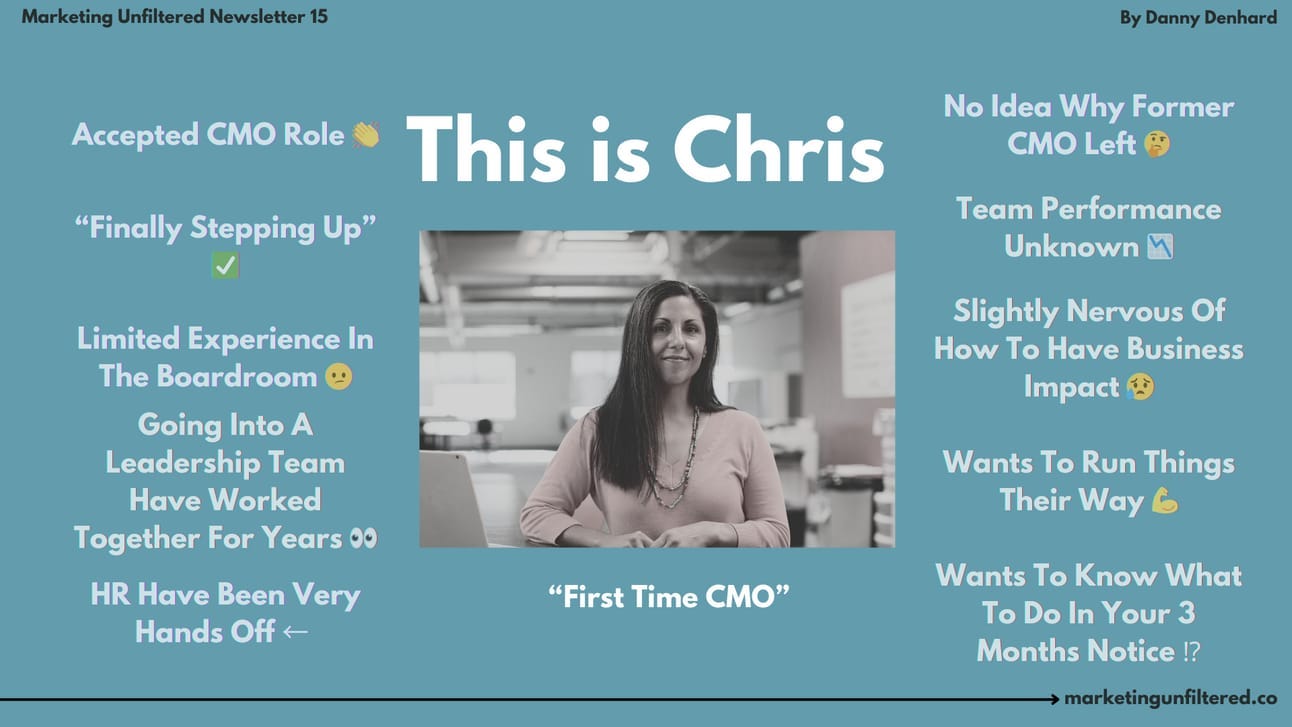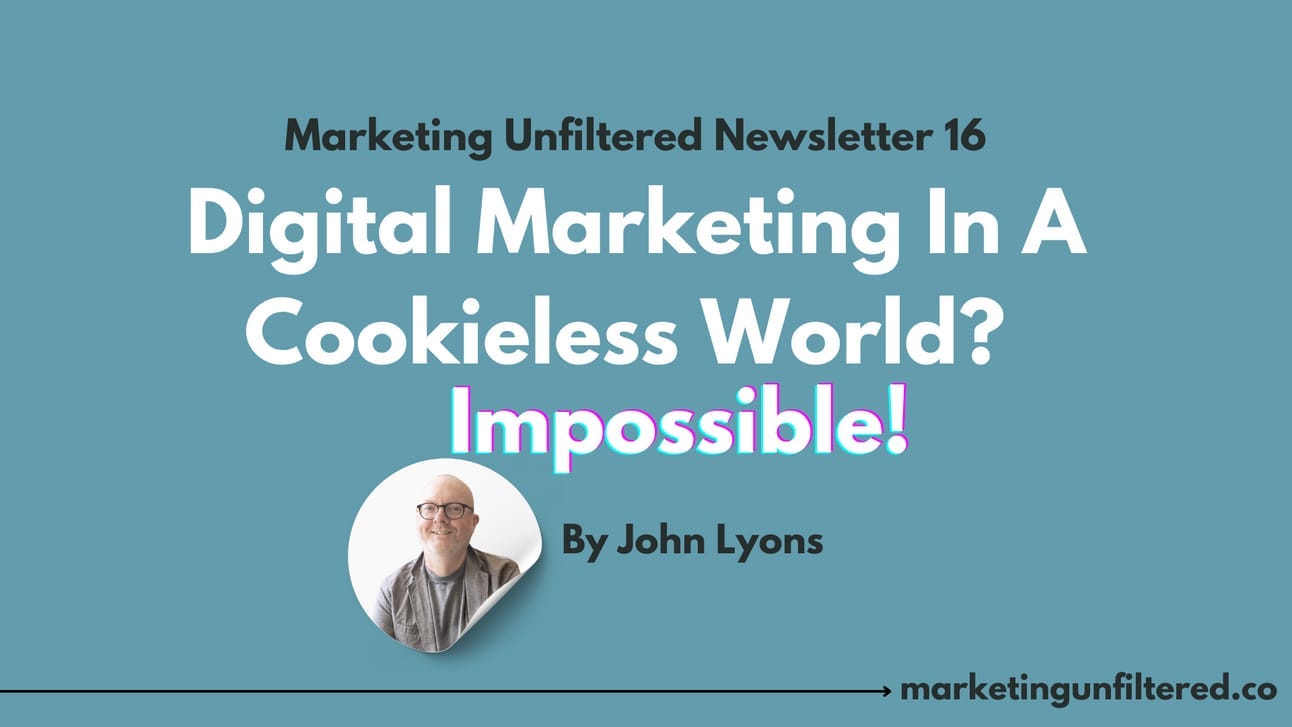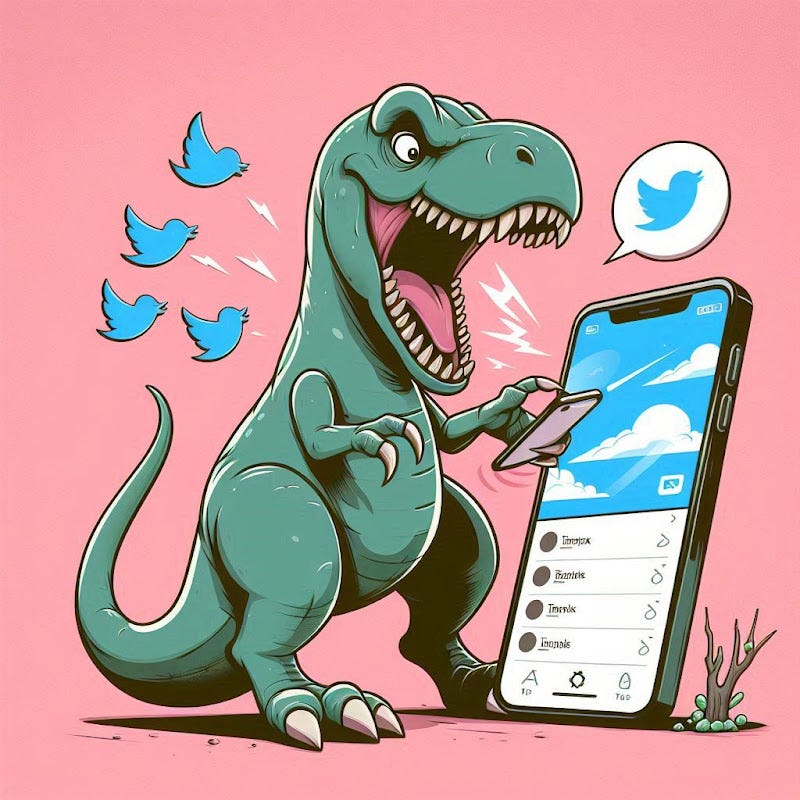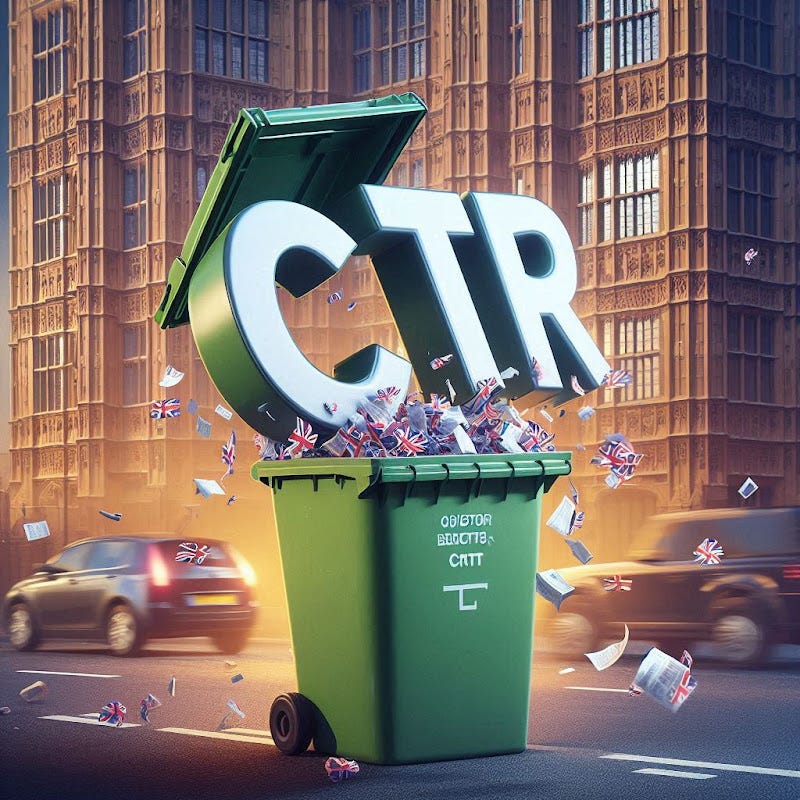Digital Marketing in a Cookieless World? Impossible!
🍪 Marketing Unfiltered #16 - Can Marketing Really Survive The Upcoming Cookieless World? 🍪
Good Morning & Happy Friday.
It’s one of the “Marketer’s days of the year” Valentines Day, this week we have John Lyons with his love story of Digital.
This week we have John Lyons returning for his second article for Marketing Unfiltered.
Thank You for all of your kind messages and emails on How To Own Your Successes As The CMO - if you missed it read it here https://www.marketingunfiltered.co/p/cmo-success

https://www.marketingunfiltered.co/p/cmo-success
❤️ Love Marketing Unfiltered? ❤️

Digital Marketing in a Cookieless World? Impossible!
I'm old enough to remember not just when this was all fields, but back when it was all Jurassic and before the dinosaurs got wiped out by the Information superhighway. OK, there are still some dinosaurs walking the earth, pissing on what they still consider new technology on LinkedIn and the burning remnants of Twitter (get fucked, I'm not calling it X) in this, the 32nd year of our Lord the World Wide Web.

I built my first website when the web was but two years old, barely able to walk or speak coherently.
You can make your own jokes on that one.
Moving on a couple of years I had founded a web design agency, and a new search engine called Google was launched. A little down the line again and we were now operating in digital marketing, whilst that same search engine launched Google ads. It still wasn't the top search engine though, but as we all know that came and they have since dominated search, treading on the balls of all the gimp-masked competitors.
It wasn't really until the mid noughties that the tools and platforms contemporary digital marketers have come to know, love and rely upon came to be.
Google analytics was launched in 2005, the same year as YouTube which Google later bought.

The first video on YouTube, Me at the zoo 2005.
Facebook was made available to all, having originally been locked down to Ivy league and Oxbridge students and graduates - so my South Bank Polytechnic background went against me, in 2006. The same year that Twitter was launched and was not run as a mouthpiece for a right-wing narcissist.
The iPhone didn't roll along until 2007.
Why the history lesson? Well, gather round kids, and get comfy, Ol' John's gonna tell you a story about the before times, when digital marketing was actually possible without cookies.
What's that, little Prosecco? Didn't all the digital marketers shit the bed in panic like they are now at the thought of third-party cookies going away? No. No we didn't.
What we did was... cue smoky and wavy segue into the depths of memory
What we did was take our cues from traditional marketing. Many of us, and certainly me, were creatives who had learned how to make this new technology work for brands. Not just in terms of web sites, or home pages as people then tended to refer to them, but in terms of all of the new means of communication and interaction that could be used to create a compelling branded digital experience.
What we developed was an understanding of how users find, engage and respond to digital content and activities. In exactly the same way a good marketer would. Through research, and applying that research.
We would start by defining and understanding our ideal consumer, and then try to work out where online we might find them.
That might be topic-specific websites where we could place digital display ads, sponsor a newsletter or lease a member email list. It might also be forums, chatrooms or fan sites.
Then, having established where we can buy, lease or otherwise get target market eyes, what is going to grab their attention. More importantly, what is going to make them stop doing what they were doing - browsing, reading emails, demanding that their football club sack it's manager - and engage.
What is the hook?
Again, this is about doing research, understanding your target market and where their interests and desires overlap with the brand or product we are marketing, and creating an engaging digital experience.
Sometimes this was exclusive content, sometimes an interactive game, perhaps with a bragging rights leaderboard, and quite often a chance to win a prize relevant to the audience and product which was never, ever, fucking ever the product itself.
It should also be something which would uniquely appeal to your ideal customer. Everyone wants a million pounds, not everyone wants to spend the night in a haunted house with a live stream. Yep, did that once.
Then what call to action will land the hook in the first place.
All so very traditional so far, right? Well, yes. Because marketing.
Now, what we had the ability to do which other forms of marketing - aside from direct marketing, and more on that later - was convert the target audience to subscribers. And this is where the prize became so important, because you need a name and email address for a leader board or a prize promotion.
But what’s the point?
Well, all of this fun stuff, and all of the channels we used to attract people was all tied directly to the defined ultimate goal. In entertainment, movies, TV, etc. our ultimate goal was usually a combination of creating awareness that something is being released and to give the target audience the opportunity to either buy it or sign up to a newsletter for the brand.
To reiterate, before deciding on our creative approach, we would always start off by being clear on what it is that is going to interest our ideal customer that fits the theme of the product we are working with.
Success metrics are quite often complicated, tied into attribution funnels and so granular that they often obfuscate the clarity they should give.
I started in this industry before Google Analytics, so we didn't really have the option of getting lost in multiple layers of incoherent and often conflicting data points. So we focussed on the two or three things that mattered:
Reach. How many people had seen the campaign, and so might have registered the message. I maintain that reach is still the ultimate metric for anything with an awareness objective.
Click-through rate can get in the bin along with last-click attribution.

The next most important metric was registration. How many people had opted in for email marketing or registered as a member. Certainly pre-social, this was the focus of most digital marketing campaigns - to build a first party target customer database in order to continue marketing and progressing purchase.
In some campaigns there was also a direct purchase option, perhaps a preorder or purchasing tickets for an event. Obviously this was hugely important too.
It was very much about reach, registration, conversion. That was it.
Unlike now, we couldn't always tell you the precise user journey, the number of brand touchpoints, how the attribution funnel looked or which creative was a minuscule amount more efficient.
But we understood the mechanics of the channels, we understood how to engage target customers and how and where to find them hanging out in the first place.
To illustrate, let me take you through a previous project from my digital days.
And yes, obviously it's one of the better ones, not the one for Beer League which featured a character who could shoot baseballs from, um. Anyway.
The campaign was for the UK release of the Japanese original version of The Grudge 2. The unexpected global success of The Ring and the first The Grudge movie introduced the western world to J horror. A very different experience to the bloodlust of typical western horrors, they tended to be darkly atmospheric and build slowly, unwinding a plot to build anxiety and unease.
At around the same time there was a burgeoning trend for escape the room games. These too originated from Japan, and were also slow-burning mind fucks.
The cadence, the required blurring of logic and the shared cultural roots suggested that a branded escape the room game would give us the best scope of introducing some of the key movie elements - the house in which it was set, the ghosts, the atmosphere and even the cat, which we only used as a random sound effect but which caused much debate on forums.
The game was our hook. The call to action was to escape the haunted room for a chance to win an on-theme trip to Japan.
Online escape the room game sites, horror movie fan sites, the horror section of Empire magazine's website and leased email lists of horror movie fans and fans of previous J horror movies helped us get the word out.
The live leader board, showing the fastest times people had escaped the room kept it sticky, and people sharing their times on forums created huge earned media.
We had over 1 million plays. We built a healthy database for our client, who were able to remarket when tickets went on sale, and then again when the DVD was launched.
You can still play it here https://web.archive.org/web/20060822140124/http://www.grudge-two.com/game/grudge2_game.php?uid=amlist, and there's a game walkthrough on YouTube too


The Grudge 2 Game (GOOD QUALITY)
On a limited budget it gained reach, registrations and drove purchases. It did its job.
I think we've lost a lot of that understanding and creative edge in contemporary digital marketing. Something I discovered the hard way.
My first agency was acquired, my second agency launching as a European branch of the US agency who acquired us. When I exited that second agency I was clear that I didn't want the stress of starting and running a business again. I wanted to do what I was good at, or rather what my agencies where good at. Digital marketing.
So I reinvented myself as a freelance digital marketing consultant, with years of successful creative success behind me. To crickets.
Nothing. Nish. Nada. Digital marketing in the round was not what I had practiced at all. It was largely engineering, gaming algorithms, optimising for efficiency, gaining small wins against the machines.
And so I believe that we've replaced trying to understand what drives people, rather than what performs within algorithms. And AI is accelerating this.
I'm a proponent of AI, I use it daily in one form or another, but when we have AI agents creating CVs n order to get past AI agents which assess CVs we've got something very wrong.
So, in conclusion, if we are to have a cookieless world, where engineers aren't as freely able to try to game the algorithms, we could do a lot worse than look back. Look back at what has worked before cookies, what has worked for decades in marketing, and that is good ideas delivered to a receptive audience in a way that makes them give a shit either way.
» Remember to connect with John on LinkedIn and read more about John on his site.
We will land in your inbox on the 21st
Have a great weekend.
Thanks,
Danny, Harry and Marketing Unfiltered Writers
PS. Remember if you’ve missed John’s previous take, you can enjoy ↓
Brand Investment Your CFO Cannot Reject

